

You can find an unusual spot in Chervone Zarichchia, a Ukrainian village one hour southeast of Kyiv. This unique place has a lake with the same name as the nearby river, Supii, which formed in the 18th century. Long ago, the last leader of the Ukrainian state of Zaporizhian Cossacks, Hetman Kyrylo Rozumovsky, who owned the land in the nearby town of Yahotyn, ordered a dam to be built across the river. The surrounding meadows filled with water, and the oxygen-rich peatlands floated to the surface, forming islands.
In the 250 years since then, Rozumovsky's estate burned down in the early 20th century, and more dams were built along the Supii River in the 1970s, creating more artificial lakes with fish farms and a drainage system in the river's floodplains. The floating islands, however, stayed and became nesting spots for rare birds over time. Three years ago, one Ukrainian man and his wife moved to the area with ambitious plans — not for personal gain but to preserve the existing ecosystems. Read about the couple's solution story on Rubryka.
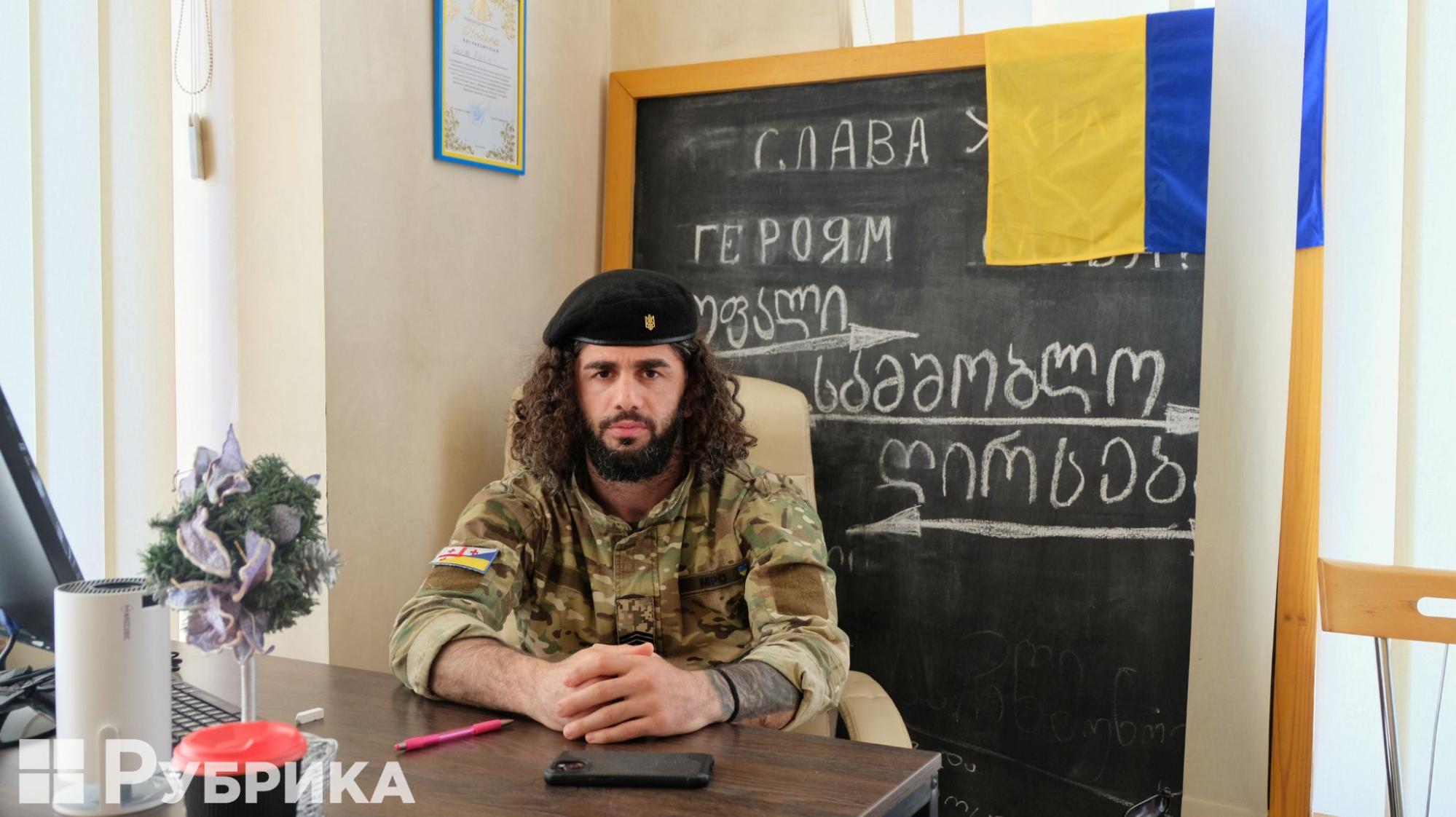
Miro Vanadze
When Russia launched its large-scale invasion of Ukraine in 2022, the Georgian diaspora united to help Ukrainians: they evacuated women and children to Georgia, offered their homes there, provided humanitarian aid, and organized rehabilitation trips to their home country for Ukrainian children. Many Georgians — diaspora members and those who hadn't lived in Ukraine before — joined the ranks of the Ukrainian Armed Forces after the invasion.
Despite all the support, news of pro-Russian statements from the Georgian government raises doubts and grounds for manipulation. Fake news like "Tbilisi helps repair Russian planes," "Georgians support Russia," "Georgia accused Ukraine of involvement in protests in the Georgian capital, Tbilisi," and many others successfully spread through Russian propaganda (and what's worse—they work).
Rubryka traveled to Tbilisi to speak with Georgian volunteers and activists about helping Ukraine during the war and the biggest challenges in Georgian-Ukrainian relations right now. Read Rubryka's report here.

After the tactical medicine class. Denys Kurta, an instructor of Tactical Medicine North, and Olesia Korzhenevska, the founder of Zesyky 9 ¾. Photo: Anastasiia Rozhynska
The new Ukrainian project, called "Zesyky 9 ¾," is a school for gentle mobilization, says its founder, Olesia Korzhenevska. Its goal is to give civilians a basic understanding of the Ukrainian Armed Forces' structure, teach them tactical first aid and close-quarters combat (CQC), and introduce them to military recruitment and various army professions. While the first class graduated for free, the project plans to take a fee for future courses.
We talked to Olesia Korzhenevska about the lessons learned from the first class and why the project isn't being scaled to all regions.
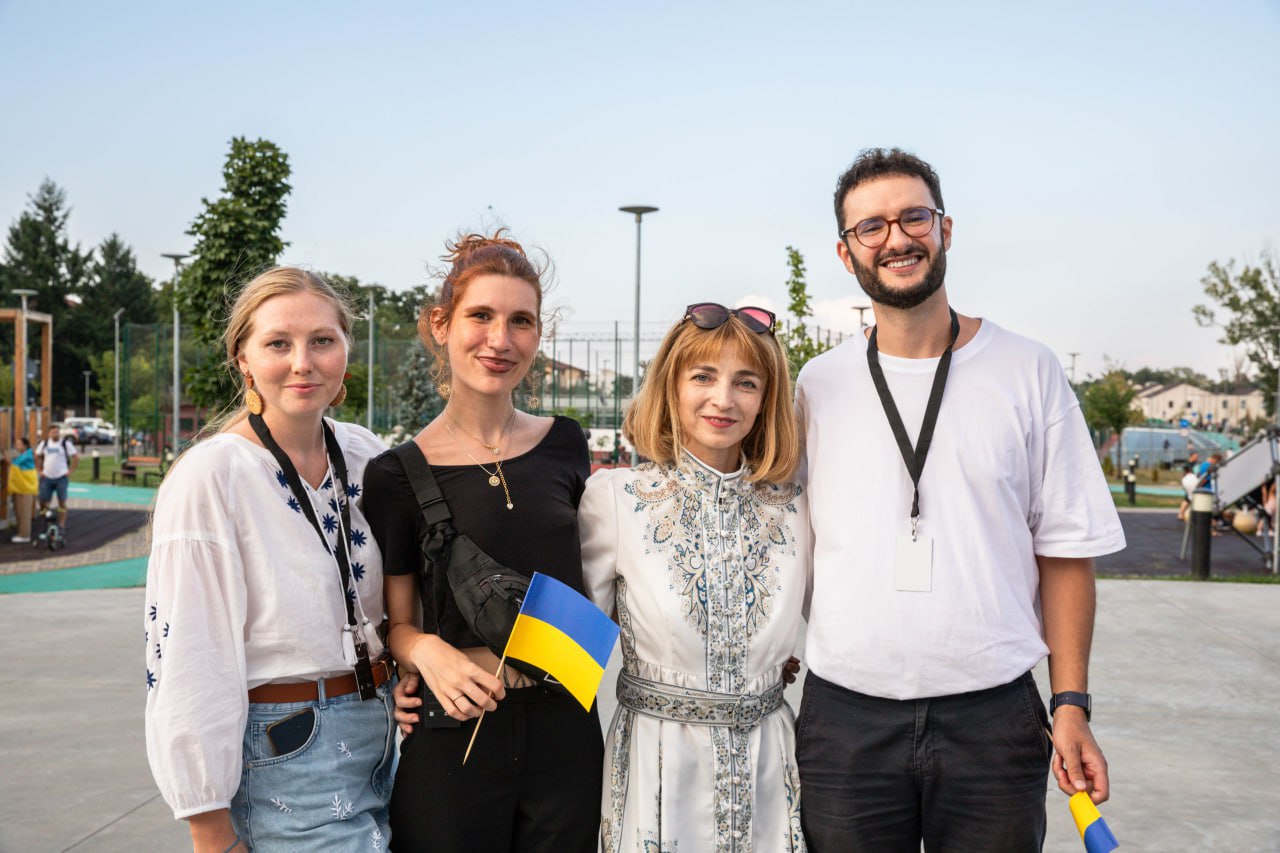
From left to right: psychologist Anna Denysenko, project coordinator Juliana (Yana) Niga, Iryna Komisarova from Mariupol, and project manager Cesar Moreira. Photo from the Ukrainian House archive
Within the EU, Romania ranks eighth in the list of nations that accepted the largest number of Ukrainian refugees fleeing Russia's full-scale war. Nearly 78,000 Ukrainians live in this southeastern European country as of today. The February 2024 poll by the humanitarian organization Save the Children Romania found that besides financial difficulties, job searching, and language barriers, the main problems for those who found refuge in Romania from the war were homesickness and no friends and relatives nearby.
In the northwestern Romanian city of Cluj-Napoca, refugees from different parts of Ukraine decided to establish the Ukrainian House. Assisted by a local community organization, this educational and cultural center provides humanitarian aid and undertakes educational initiatives. Ukrainian volunteers contribute by sharing their skills, organizing various events, and supporting each other.
Kateryna Yerska, a representative of the Ukrainian House in Cluj-Napoca, shared with Rubryka how the hub operates and brings together Ukrainian and Romanian communities.
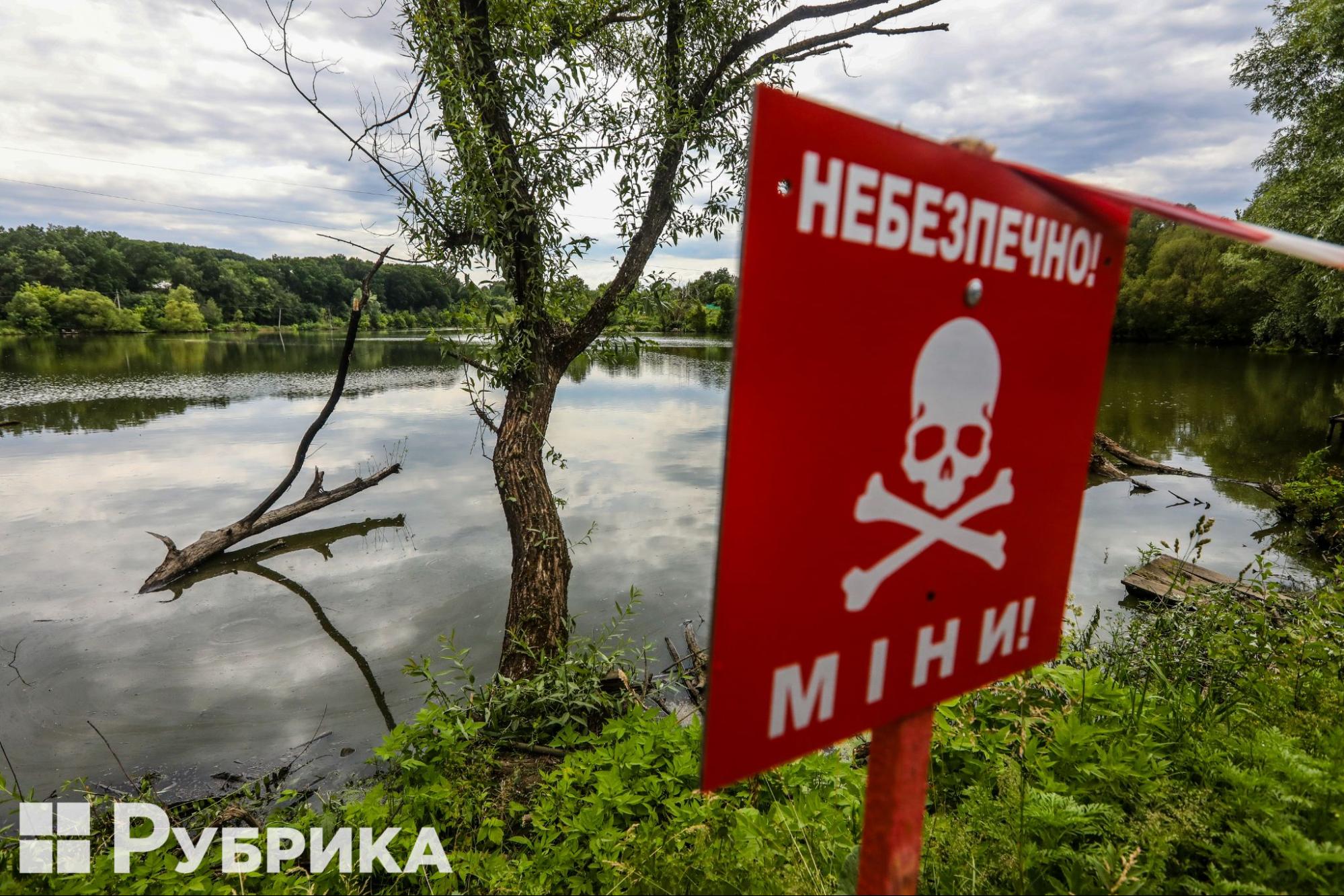
Due to the Russian large-scale invasion, 30% of Ukrainian territory is estimated to be contaminated with mines and explosives. Experts say clearing all de-occupied and front-line areas of mines will be impossible in a short time and predict it could take 5, 10, or even 30 years. Locals and sappers still find mines even in the Kyiv region, which was liberated from Russian occupation over two years ago. These discoveries often cost people their health or lives — every week, we read news reports about civilians being injured by mines in different regions.
Ukrainians are confronted with the reality of living in a country with such dangers, and they must learn how to act if they ever encounter an explosive. Rubryka spoke with an expert and gathered a step-by-step guide for people whose homes, fields, gardens, or other areas might be mined.
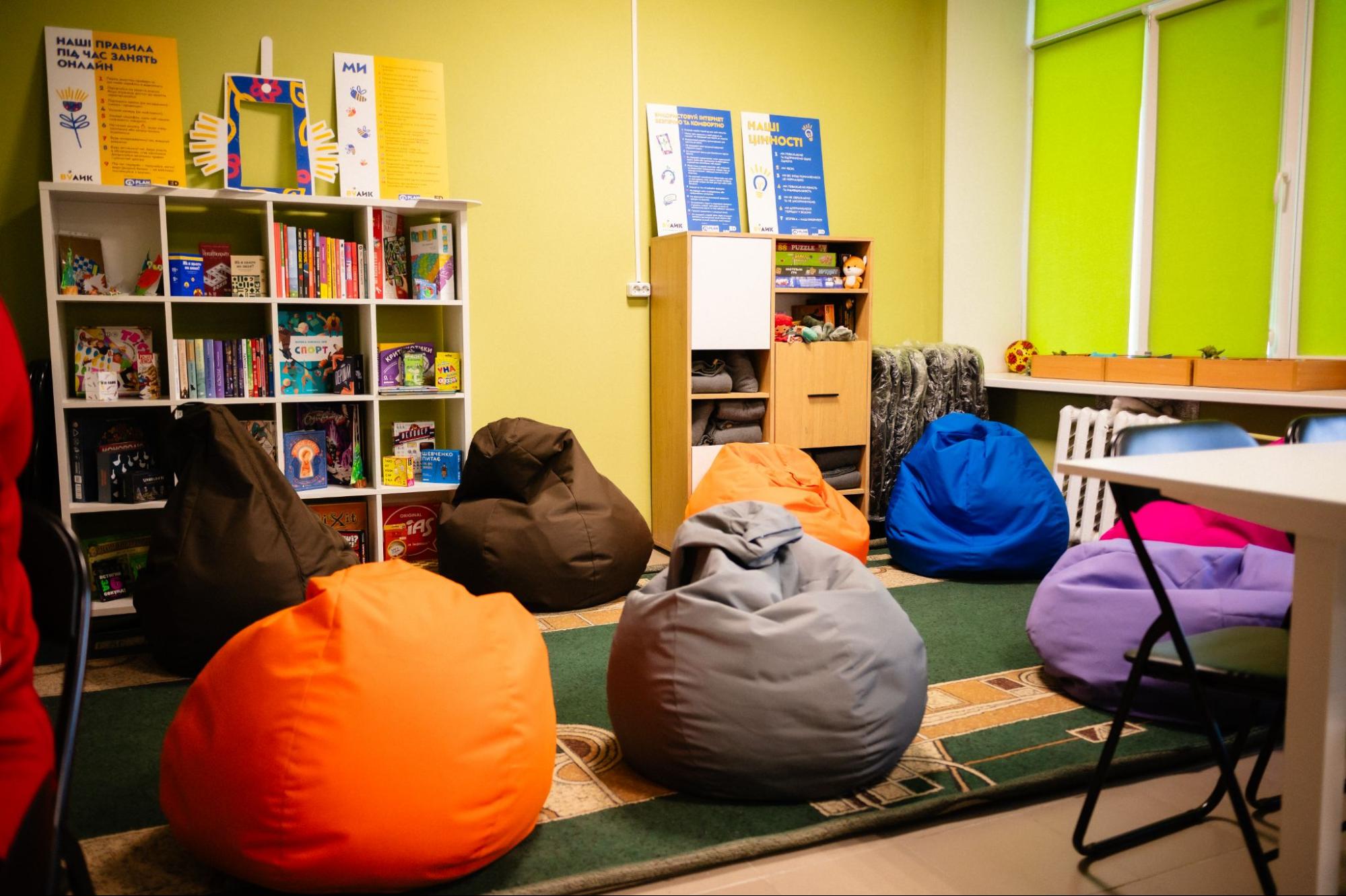
One of the "Hive" centers in Mykolaiv. Photo: savED
Schoolchildren in Ukraine's southern city of Mykolaiv lack access to in-person education. Since Russia started its full-scale war, its army damaged about forty city schools and destroyed five. The local administration doesn't risk returning students to survived classrooms due to the city's proximity to the front line: an explosion could happen before the air raid alarm is even sounded.
With the COVID-19 pandemic and the Russian invasion, remote learning has been ongoing for over four years, which has created the problem of the lack of social interaction among children. The savED Charity Foundation offers a solution — an alternative way to restore access to education with their "Hives." These educational spaces based in schools allow children to learn in person and attend classes of school teachers or special tutors working at the center. It's also great for extracurricular activities like playing board games, reading modern Ukrainian literature, or drawing with 3D pens.
Find out more about how the "Hives" initiative works on Rubryka.
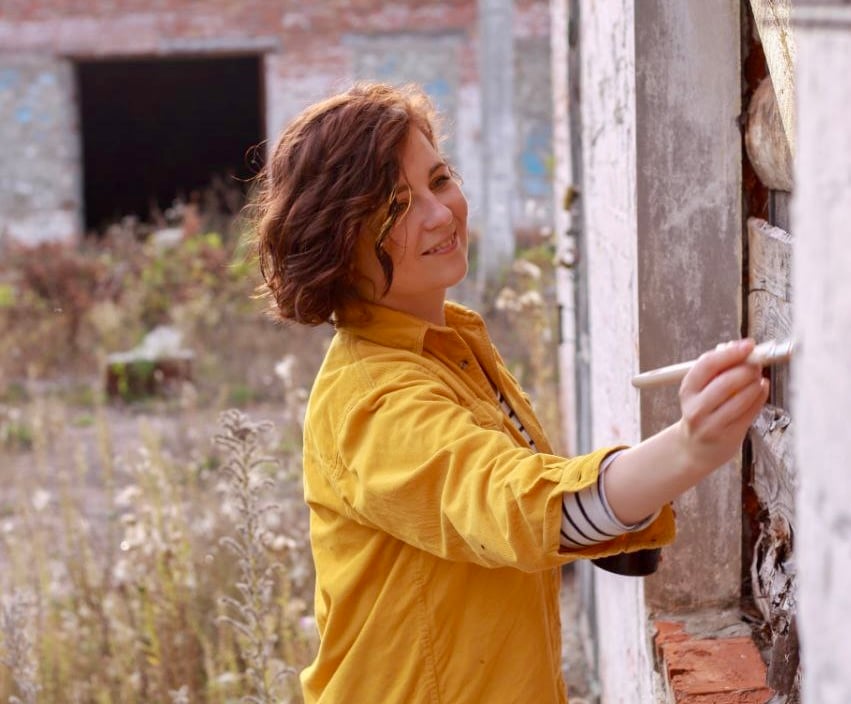
Yulia Dudysheva. Photo from the heroine's archive
Many Ukrainians, forced to leave their cities and villages because of Russia's large-scale invasion, urgently needed shelter. The government cannot provide social housing for every family, so displaced people must find solutions independently. Over the past two years, the demand for long-term rental housing has only increased. Currently, any available housing — from elite apartments and houses to old or long-abandoned cottages — is being rented out in relatively peaceful regions of Ukraine.
Cheap housing, which often looks unattractive and needs repairs, is unfortunately the only choice for many internally displaced persons (IDPs) because it is the most affordable option for those who have lost everything.
"For people whose homes were taken by the war, it's important not just to have a roof over their heads but for their new place to feel cozy. There should be something warm, homey, and familiar that gives them energy and strength," says Yulia Dudysheva, a kind-hearted woman living in Ukraine's northern Chernihiv region.
Yulia launched the "Cozy Homes for IDPs" project in Sosnytsia, a town 90 km from the Russian border. She personally renovates homes for displaced people, turning abandoned houses into comfortable and cozy places to live. Read about her kind initiative on Rubryka.
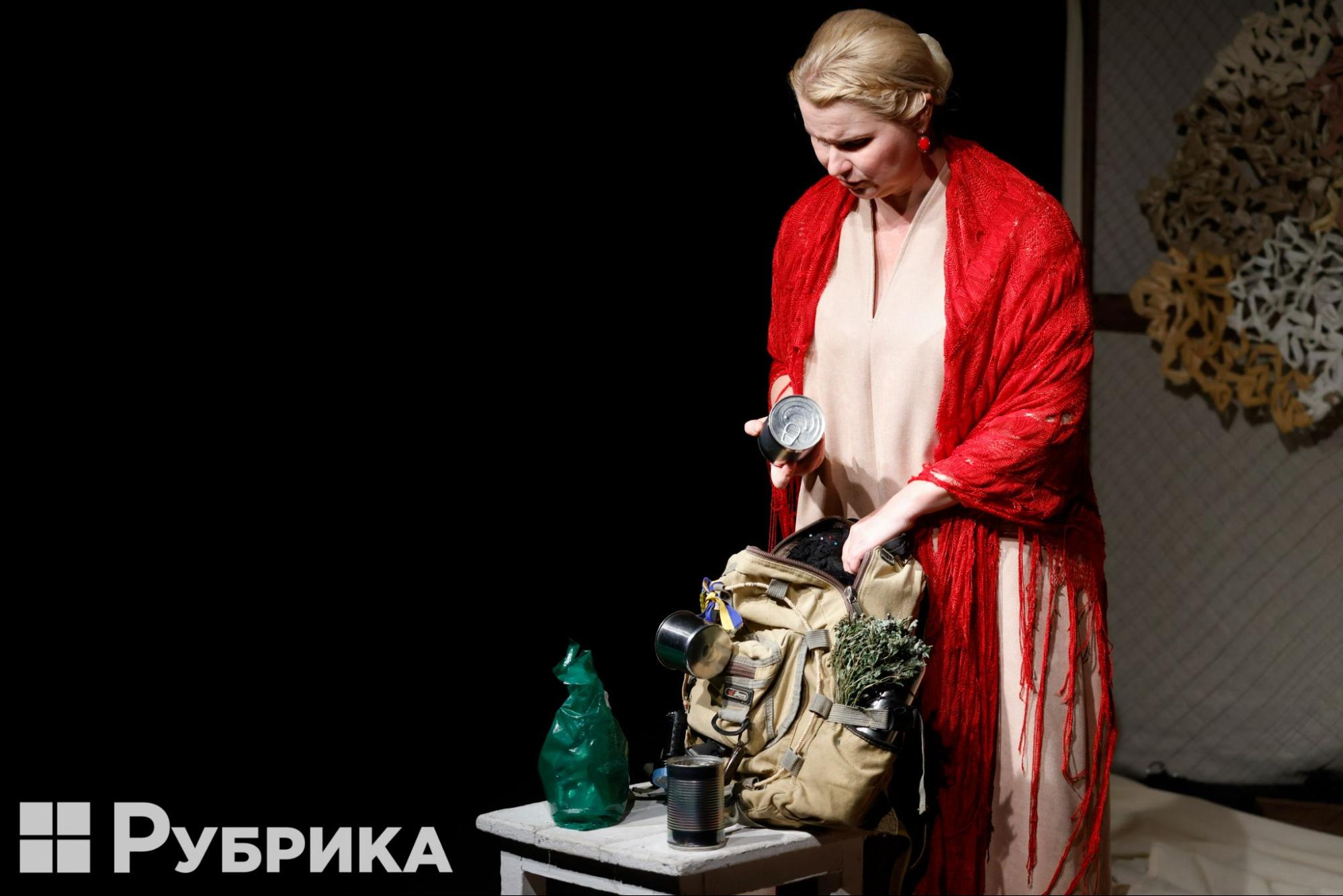
The Academic Art Drama Theater in Ukraine's southern city of Mykolaiv never stopped working, even under constant Russian shelling. When Russia started its full-scale war in 2022, the theater troupe initially performed traveling shows for displaced people and soldiers. Eventually, they found a way to return to their own stage and put on new plays. One of the shows made its way from a bomb shelter in Mykolaiv to a prestigious stage in Kyiv. Rubryka visited the one-woman show and told the story of the performance and the theater's journey here.
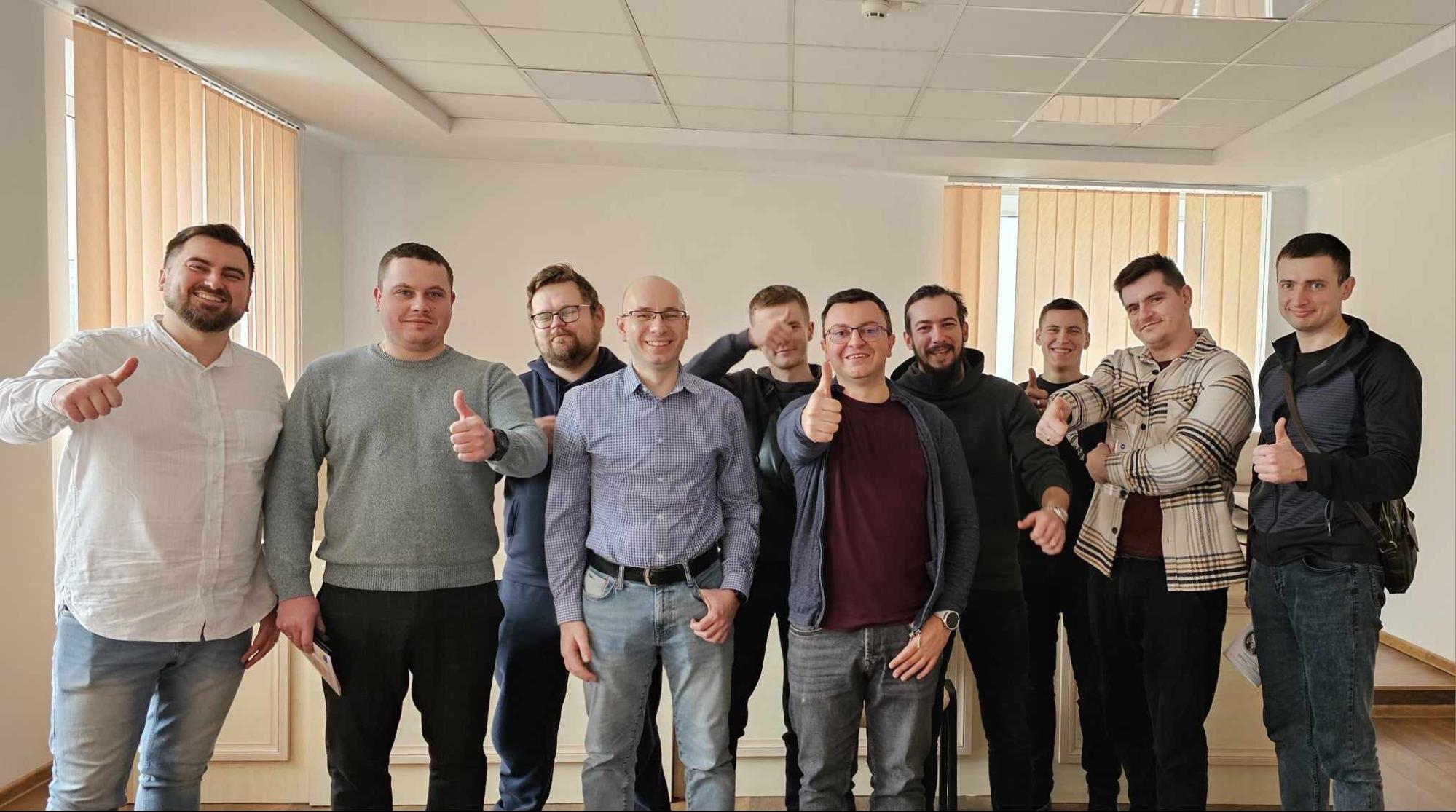
After the "I'll Be a Dad" course. Photo from Artur Fedorkiv's archive.
Often, men don't fully understand what a pregnant woman goes through. They don't know what kind of support she needs, how she changes, and how she should recover after giving birth. And, of course, what to do with a newborn?
Ukraine's northwestern city of Rivne recently welcomed free lessons for future dads. The "I'll Be a Dad" course, started by obstetrician-gynecologist Artur Fedorkiv, is held monthly. In informal talks with men, the doctor discusses preparing for fatherhood, partner-assisted childbirth, the father's role, and how to help the mother after birth, among many other topics. Learn more about the initiative on Rubryka.

Women's volunteer firefighting team of the Velyka Omeliana community. Photo from Alla Karpiuk's archive
Fires are disasters that don't wait. In developed Western countries, it takes fire rescue teams 5–6 minutes to arrive at the scene. According to Ukrainian standards, fire trucks should reach the site within 20 minutes from the farthest point. However, in rural areas, even this time is often insufficient for fire rescue units to reach remote villages.
With the start of Russia's full-scale war in 2022, which brought rocket and drone attacks on critical energy or other civilian infrastructure even to the regions far from the front line, the importance of having more rescue teams and supporting first responders and firefighters became even more apparent.
One of the most crucial factors in successfully handling fires is timely detection and response. A few years ago, communities began creating volunteer fire brigades to reduce response times. Rubryka talks about a volunteer women's fire team in Ukraine's northwestern Rivne region, preparing to fight fires and handle emergencies. In our article, find out why this solution is important and how it came about.







